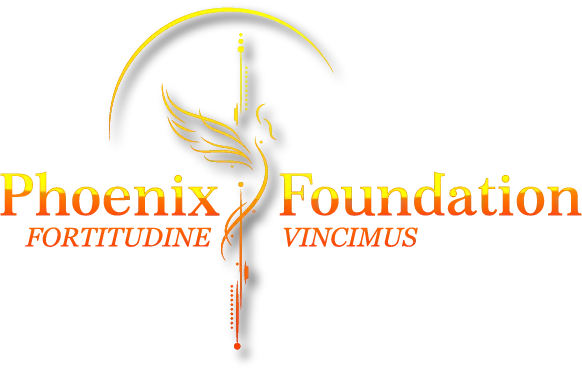HAVE INQUIRIES?
Text or Call us now +63 40 520 2223
HAVE INQUIRIES?
Text or Call us now +63 40 520 2223
Integrative & Complimentary Therapy
Integrative & Complimentary Therapy
Integrative & Complimentary Therapy For Mental Health
Holistic Approaches Supported by the Phoenix Foundation for Healing PTSD:
1. Mindfulness Meditation - Practices such as mindfulness meditation aid individuals in focusing on the present moment, reducing anxiety, and cultivating a sense of inner calm. These techniques encourage a non-judgmental awareness of thoughts and feelings, which can significantly alleviate PTSD symptoms.
2. Clinical Hypnotherapy (Guided Meditation) - Clinical hypnotherapy, often referred to as guided meditation, is another therapeutic approach that can be beneficial for individuals with PTSD. This technique involves a trained hypnotherapist guiding the individual into a state of deep relaxation and focused attention. During this state, the therapist uses techniques like guided imagery and positive suggestions to help the individual process traumatic memories, reduce anxiety, and change negative thought patterns. Clinical hypnotherapy can promote a sense of calm, increase emotional resilience, and improve overall well-being when integrated with other forms of treatment.
3. Trauma Yoga Therapy - Engagement in yoga supports both physical and mental well- being. The combination of breath control, meditation, and physical postures helps to ease tension, improve body awareness, and promote relaxation, making it an effective tool for those coping with PTSD.
4. Trauma Yoga and Meditation - Both yoga and meditation focus on the mind-body connection and can be particularly effective in managing PTSD symptoms. Yoga incorporates physical postures, breath control, and meditation to reduce stress and enhance relaxation. Similarly, meditation practices such as mindfulness can help individuals remain grounded in the present moment, decrease anxiety, and improve overall mental well-being.
5. Art Therapy - Art therapy allows individuals to express emotions and experiences non- verbally through creative processes. Drawing, painting, and other forms of creative arts can facilitate emotional release, reduce stress, and foster a sense of accomplishment and self-discovery.
6. Music Therapy - Engaging with music, whether through listening, composing, or performing, offers an emotional outlet and can be deeply soothing. Music therapy helps to improve emotional expression, reduce stress, and foster a sense of community and
connection.
7. Support Groups - Connecting with others who have similar experiences can be incredibly validating and comforting. Support groups provide a safe space for individuals to share their stories, offer support, and gain insights from others who understand the challenges of living with PTSD. These groups can be conducted in person or online, offering flexibility and accessibility to those in need.
8. Recreational Therapy - Engaging in recreational activities such as sports, hobbies, or adventurous pursuits can be a powerful therapeutic tool. Recreational therapy promotes physical health, enhances social interaction, and provides a constructive outlet for emotions. Activities like rock climbing, kayaking, fishing or playing team sports can also boost self-esteem and offer a sense of achievement for individuals dealing with PTSD.
9. Massage Therapy - Massage therapy is a holistic treatment that involves the manipulation of muscles and soft tissues to promote relaxation and alleviate physical discomfort. For individuals with PTSD, massage therapy can be particularly beneficial in reducing muscle tension, easing anxiety, and enhancing the overall feeling of well-being. Through techniques such as Swedish massage, deep tissue massage, or aromatherapy massage, the therapeutic touch can help reduce the physiological symptoms of stress and trauma. Moreover, the calming effect of massage therapy can improve sleep, decrease pain, and provide a safe space for individuals to reconnect with their bodies in a positive way. When used alongside other therapeutic modalities, massage therapy can contribute significantly to the comprehensive treatment of PTSD.
10. Reflexology - Reflexology is a therapeutic practice that involves applying pressure to specific points on the feet, hands, or ears, which correspond to different organs and systems in the body. For individuals with PTSD, reflexology can offer a range of benefits, including reduced stress, improved circulation, and enhanced relaxation. The targeted pressure applied during a reflexology session can help alleviate physical tension, promote a sense of calm, and support the body's natural healing processes. By stimulating the reflex points, this therapy can also aid in balancing the body's energy and improving mental clarity. When incorporated into a holistic treatment plan, reflexology can be a valuable tool in managing PTSD symptoms and enhancing overall well-being.
11. Equine-Assisted Therapy - Working with horses can be incredibly rewarding and therapeutic. The process of grooming, feeding, and building a relationship with these gentle creatures helps to develop trust, improve communication skills, and promote emotional healing for those affected by PTSD.
12. Nutritional Counselling - Proper nutrition is vital for overall health, including mental health. Nutritional counselling helps individuals to understand the importance of a balanced diet, and how certain foods can impact mood and energy levels, thereby supporting the healing journey from PTSD.
13. Acupuncture - As a component of traditional Chinese medicine, acupuncture involves inserting thin needles into specific points on the body. This practice can help to relieve stress, reduce pain, and promote overall wellness by balancing the body's energy flow.
14. Aquatherapy - As an effective holistic approach to healing for PTSD survivors, aqua therapy utilizes water's therapeutic properties to ease both physical and mental stress.
This gentle, supervised therapy fosters a supportive environment where participants can safely explore movement, enhance mobility, and achieve profound relaxation. By incorporating personalized aquatic exercises and float tank therapy, Aquatherapy empowers individuals to reclaim their well-being and manage symptoms in everyday life.
Your Support Can Make a Difference Today.
The Phoenix Foundation is not staffed to offer
emergency mental health services.
If you need immediate help, please consider the following resources:
The Phoenix Foundation
Varsity Medical Professional Building
8 Varsity Estates Circle NW
3rd Floor
Calgary, Alberta
T3A 2Z3

The Phoenix Foundation is located in the traditional territories of the Niitsitapi (Blackfoot) and the people of the Treaty 7 region in Southern Alberta,
which includes the Siksika, the Piikani, the Kainai, the Tsuut’ina, and the Iyarhe Nakoda. The City of Calgary is also home to the Métis Nation.
Content © Copyright - The Phoenix Foundation
Your Support Can Make a Difference Today.
The Phoenix Foundation is not staffed to offer
emergency mental health services.
If you need immediate help, please click on the BUTTON below.
Location
The Phoenix Foundation
Varsity Medical Professional Building
8 Varsity Estates Circle NW
3rd Floor
Calgary, Alberta
T3A 2Z3

The Phoenix Foundation is located in the traditional territories of the Niitsitapi (Blackfoot) and the people of the Treaty 7 region in Southern Alberta,
which includes the Siksika, the Piikani, the Kainai, the Tsuut’ina, and the Iyarhe Nakoda. The City of Calgary is also home to the Métis Nation.
Content © Copyright - The Phoenix Foundation
